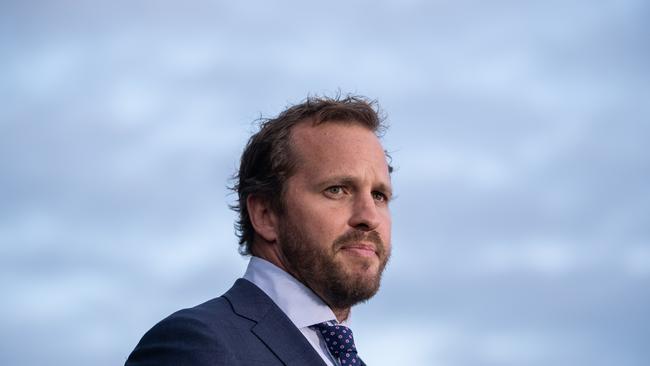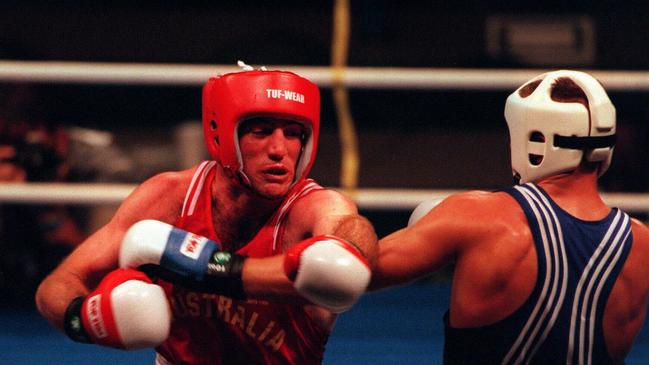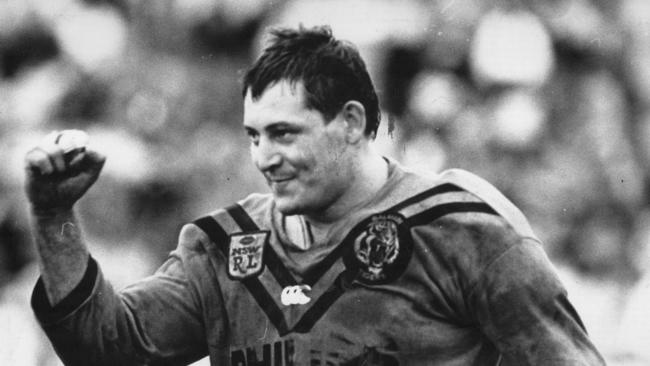NRL 2023: The unspoken truth of CBA pay saga, Paul Kent
The narrative that NRL players are only in the game for a short time is misleading, and when they retire most will have a start on life most young men only dream of, writes Paul Kent.

Opinion
Don't miss out on the headlines from Opinion. Followed categories will be added to My News.
Monday morning Steve Roach, the old Balmain fighter who moonlighted as a front-rower, got on a plane to Queensland for a little bit of side business.
Life is an eternal side hustle for the game’s older players.
Blocker, 62, doesn’t exactly talk out of the corner of his mouth, but he does have his own beer hitting the coolrooms soon and he is adamant, like all his schemes, that this one will send him into early retirement.
He has an entrepreneurial streak, few know.
Next to him sat a man with a nose in need of a good panel beating itself, a man who never made a dollar from his sport but is honest and hard working and emerges as a personal hero.
Rick Timperi captained Australia’s boxing team at two Olympic Games. He won various tournaments around the world, has the medals to prove it, was a multiple Australian champion, and was flying to Queensland as part of his business as the managing director of Stone Mason & Artist.
“Nobody makes you do it,” he was saying of his sport.
Timperi, 56, represented Australia for the best part of a decade and resisted the lure to turn professional.
Once he was old enough to work, Timperi apprenticed to his dad as a fourth-generation stonemason and now runs one of the biggest, if not the best, stone masonry business in the country.
His workers are currently doing restorations at the Queen Victoria Building, Fort Denison, the Governor-general’s House, the clock tower in Martin Place, among others.
“No one gave me a start,” he says.
“I’ve done everything myself.”

Footballers were still part time when Roach was playing. The Tigers were at their prime with a rich vein of players who rejuvenated club fortunes and part of their success was that the club secretary, Keith Barnes, ran it like a socialist club.
Wayne Pearce was the undisputed leader and around him was Roach, Garry Jack, Benny Elias, Paul Sironen, Bruce Maguire, all internationals.
When it was contract time, Barnes would call them in for negotiations, wary that egos were sometimes involved and that he had to be fair.
“All the internationals are on the same money,” he’d say. “Except for Benny. Benny’s a bit better.”
These days Blocker carries all the aches and pains from his days in the front row. The same ache his old rivals and teammates share.
In the plane seat next to him Timperi has his own war stories.
His face is marked with scars earned from almost 300 fights, not many of them easy, white scars that only age is beginning to disguise.
There isn’t an easy day’s work shaping stone but he has worked hard and, as the boss, he has transitioned from days on the tools to running the business that turns over upwards of $30 million a year.
Timperi always accepted he was doing an amateur sport, you can’t exactly play at boxing, and while the professional ranks were always next door he stayed amateur because that was his love.
He was up for the sacrifice of long work days around it, and whatever toll they took on his body.
“That’s the decision you make,” he says. “If you don’t want to do it, walk away.”

Timperi never believed boxing owed him a living, and certainly not after he retired.
He could have walked away at any point, no longer prepared to accept the sacrifice or pain and injury or what setbacks the future might hold, but made of sterner stuff he kept on.
He accepted any career as an athlete was always only temporary, a young man’s choice.
Roach was no different.
The ARL was semi-professional when he played, the top players often given “gimme” jobs by clubs with sponsors or at the leagues club while the less talented actually did a full day’s work for a full day’s pay, before hitting training Tuesday and Thursday nights.
Roach sold chemicals to the wharves and mines and in 1990 bought a brewery truck with former teammate Steve Lavers, a real job that meant telling Bob Fulton he could not tour with the Kangaroos because the £200-a-week allowance wouldn’t cover his wages, and he had a wife at home.
Lavers convinced him to go, telling him it was a once-in-a-lifetime thing and they would find a driver while he was gone to somehow make do, sending Roach’s wife Kathy what he could for her to make go of it at home.

Much has changed for the footballer now.
They are well paid and even the minimum wage is a six-figure salary well above what apprentices earn, or most other young men, and the NRL and the RLPA are about to sign off on a deal that will give the players just about everything they have asked for.
I have said before you can’t begrudge anyone trying to earn as much as they can, and the players deserve what they can get.
But this narrative they push that they are only in the game for a short time, designed to win public sentiment, and so deserving of the lion’s share of game revenue is misleading.
What gets left unspoken is whenever they do retire, sometimes hopefully in their 30s, they will have a start on life most other men their age and education would not come anywhere near.
If they weren’t good enough to last long, or properly manage that head start, well, that is the risk most aiming high in the job market undertake.
As for this other claim about the toll on their bodies, and their need for an injury fund to look after their lives well into the future, the simple truth is if the toll is too much, nobody is forcing them to play.
Take up accountancy, you won’t get rained on and suffer no bruising.
Meanwhile, what has not been adequately explained is where the money will now come from for investment in the game’s future, in regard to building assets and, most importantly, the fight to restore pathways and participation.
It’s not an answer two old warhorses, from two of the world’s toughest sports, have.
They simply remain proud of what they did, and what they gave.
Patriots, we know, will give for a cause that the mercenaries won’t.
It’s the difference between now and then, I suppose.





